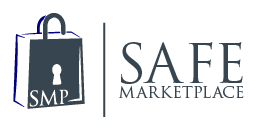To be fair, the computer this is being written on was made in China by a large and reputable company. Great machine. One of our colleague’s old work vehicles was made in Mexico and lasted almost half a million miles.
High quality products have been and are made in China and Mexico for American companies. Unfortunately, safes are not one of them.
The problem starts with why safe “manufacturers” go to China or Mexico. They go there for price, and they don’t ask for quality. These importers are not willing to make the commitment of capital and resources to manufacture products in America and, worse, they are not willing to commit to having a quality product made by their third party manufacturers.
Bottom line, it’s MUCH cheaper and A LOT faster to import a few container loads of safes and start selling than to do the real work of creating real safes.
Here are a few problems with imported safes:
- Un-Tested Safes. Underwriters Laboratory does not inspect foreign production lines. If a UL listed safe is made domestically, UL can and does audit the product and production line to ensure the product meets the same standards as that tested and certified by UL. If the safe is made overseas, UL never steps foot in the factory. American Made manufacturers are held accountable, importers are not.
- Lack of Quality Control: In manufacturing, errors occur. When produced domestically, safes have a final quality control check by the MANUFACTURERS employees. There is real accountability in the process. Safes made elsewhere don’t have this check. Sadly, the first person to quality control check most imported safes is you, the end consumer.
- Lack of Product Support. Problems with safes can and do happen, even the ones made in America. The companies’ whose products we sell support you, the customer AND they support us supporting YOU, the customer. If (on the rare chance) there is an issue with your safe not only are we here to help you but so is the manufacturer, along with a vast, national network of highly qualified locksmiths, safe and vault techs. Importers, even if they wanted to provide this level of service, simply do not have the infrastructure to support nationwide sales.
- Chinese Drywall. First, simply do a Google search of “Chinese Drywall” and the list of nasty additives Chinese drywall emits will make you cringe — primarily formaldehyde (a known carcinogen) and sulfates/sulfites. Second, most of these additives can and will cause firearms to corrode if the safe is not opened regularly and fresh air allowed to circulate.
- Penny Wise and Pound Foolish: You get what you pay for. There are no shortcuts to making a quality safe. Please do your research before making a final purchasing decision. Your safe dealer should have no trouble explaining the value of what they are offering to you. There is a lot of marketing hype to cut through, to the point that some things being said/implied now are outright dis-honest. However, this simple truth has not changed: While quality does cost more upfront, it costs much less over time.



